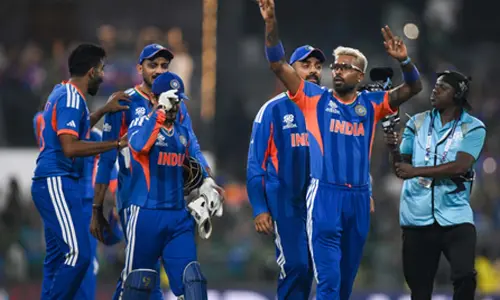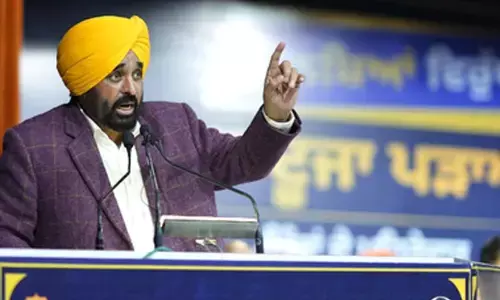NEET is boon or bane for pursuing MBBS abroad

MBBS (Bachelor of Medicine, Bachelor of Surgery) degree is one of the most popular careers paths across the world, and the journey to becoming a doctor typically starts with gaining an MBBS degree.
MBBS (Bachelor of Medicine, Bachelor of Surgery) degree is one of the most popular careers paths across the world, and the journey to becoming a doctor typically starts with gaining an MBBS degree.
Every year, there were 13 lakh students attempting National Eligibility Test (NEET) for 60,000 medical seats in India. It means there is a drastic difference between the number of MBBS seats available in India and the number of applicants aspiring for admission. Unfortunately, this amounts to nearly 22 students competing for a single seat; this is the situation prevailing at present in India.
But to get admission in a government medical college, students have to pass the National eligibility Entrance Test (NEET), which is tough competition as the numbers of government institutions are very less.
Students find pursuing MBBS in India is more expansive than in foreign countries. Inter- alia reasons, this is one reason many students approaching foreign countries to fulfill their dreams.
Due to higher fees in India, many students either choose to study in government colleges or relocate to foreign country. A student has to spend about 60 to 75 lakhs to pursue MBBS in private institutions in India, but in foreign countries it is less than 60 lakhs.
According to the Medial Council of India (MCI) website, there are 494 recognized colleges in India that offer MBBS courses, for a total of 63,050 seats. In comparison, there are 407 additional institutes located across the globe that are recognized by the MCI for MBBS courses.
In private medical colleges the fees for MBBS is more than one crore, while the same degree is often cheaper in foreign medical institutions.
According to MCI, every year around 7000 students go to foreign countries to pursue medical degree, the number is steadily increasing year by year. But from 2014, the MCI has mandated to get an eligibility certificate to study aboard by the aspirants.
The MCI received 18,383 applications in 2017-18, of which 14,118 applicants got eligibility certificates, compared to 8,737 in 2016-17.
Until last year, a letter of eligibility from the Medical Council of India (MCI) issued based on student scored 50% or above in Intermediate examinations in the subjects Physics, Chemistry and Biology.
But, from current year the aspirants who opts medical degree abroad still have to clear NEET. A change in rule was brought by MCI as qualifying NEET would be mandatory for Indian students aspiring medical admission abroad too. This will enable suitable candidates with academic competence and enduring capability to obtain admission to medical colleges abroad at the undergraduate level. However, the Deli High Court has given onetime exemption for students for last year but that is no more.
In India education system, the students who are from backward, SC and ST communities have reservation in medical seats. This is also one of the reasons for a candidate to choose abroad institutions for pursuing medicine. Moreover, the variation in cut-offs for various categories keeps the students to opt foreign medical institutions.
Russia and China are the two major international destinations for Indian medical students aspiring for a foreign degree. A small percentage of students go to well-known universities in the U.S. or the U.K. The cost of a foreign degree usually ranges between Rs. 20 lakhs and Rs. 60 lakhs to be paid throughout the time span of the entire course, similar to many private medical colleges in India.
However, one obstacle for graduates from foreign medical colleges is that they are required to compulsorily clear the rigorous Foreign Medical Graduates Examination (FMGE), a screening test held by the Medical Council of India to determine whether the returning student is qualified for practice and further studies in India, a process which students who have completed their MBBS studies in India can skip. But, for students who complete their graduate education abroad, FMGE is not necessary.
The MCI also insists that students before FMGE screening test to compare curriculum and prepared for the test. To help students make a wise choice, the National Board of Examinations (NBE) ranks institutions based on performance of candidates in the screening test.
With this ruling, the MCI is filtering 'foreign' doctors through a double layered doorway — tested once when they go out and again when they enter in.
However, the drawback with foreign institution is that they require only academic qualifications other than scores in school final exam. It is pertinent to mention that gaining admission in US medical institutions is not competitive as in India, but find it difficult to even complete the medical course with the curriculum they learned in India. Many of them not able to qualify in the screening test conducted in US or Europe for practice medicine. This tends to discourage foreign medical universities from accepting Indian aspirants.
So, medical education should not be based on funds and to complete the education, one also requires academic excellence, hard work and perseverance.








